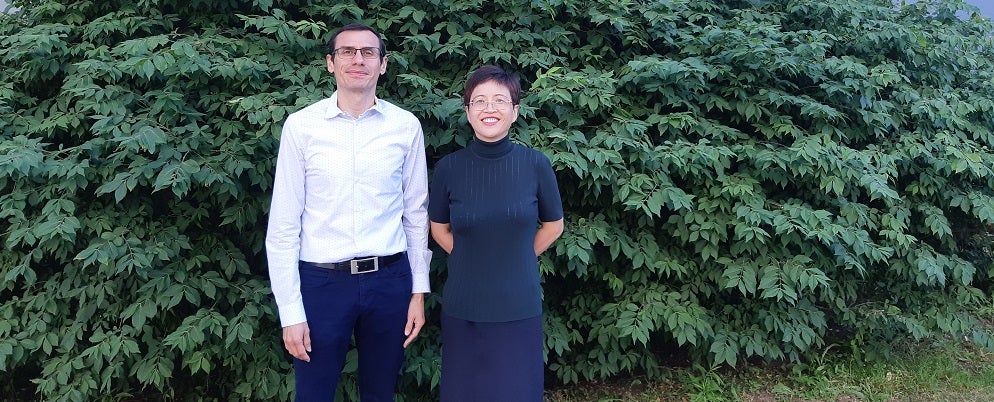
A team comprised of Department of Chemical Engineering University Research Chairs and postdoctoral fellows takes aim at finding sustainable solutions to reduce carbon emissions. Their focus on implementing conversion strategies to produce low-carbon chemicals and fuels could play a pivotal role in the reduction of global carbon emissions.
Postdoctoral fellows Bohua Ren and Guobin Wen both completed their Ph.D. at the University of Waterloo in the Department of Chemical Engineering and are now working as joint postdoctoral Fellows between South China Normal University and the University of Waterloo. Several years ago while studying at the University of Waterloo they began collaborating with University Research Chair Aiping Yu, Canada Research Chair in Advanced Materials for Clean Energy, Zhongwei Chen, and Canada Research Chair in Multiscale Modelling and Process Systems Tier II, Luis Ricardez-Sandoval to create technology aimed at reducing global CO2 emissions.
The initiative was partially funded by both the National Sciences and Engineering Research Council of Canada (NSERC), The Canadian Foundation for Innovation, the Ontario Research Fund, as well as The Canada Research Chairs Program.

Emerging sustainable technology
CO2 electroreduction reaction (CO2RR) is an emerging sustainable technology that can be utilized not only to reduce CO2 emissions but also to store intermittent electricity produced by renewable energy. A process that can transform CO2 into other valuable chemicals such as Formate and Formic acid is being investigated as an alternative approach to reaching carbon neutrality. The research synthesizes both experimental and theoretical work.
Formate can be used in fabric dyeing and printing processes, as a food additive and a de-icing agent. Formic acid is used as a preservative and antibacterial agent in livestock feed.
The team created an advanced interface atomic pattern that can convert carbon dioxide using clean, renewable energy into high-valued liquid products with increased efficiency. This is achieved using nanostructured materials.
These studies were done in lab scale, and validated using theoretical atomistic calculations. The next step in the process would be to elevate the research to pilot-scale applications. This research illuminates the path toward developing sustainable energy and offsetting the impact of climate change. Professor Luis Ricardez-Sandoval commented on the future impacts of the research,
The expectation is that researchers and industrial practitioners will look at this study and use it for actual CO2 conversion into formate or other valuable chemicals and consider this emerging technology in their operations.
This technology will have a lasting global impact in mitigating the effects of carbon emissions on climate change. This ground-breaking research exemplifies the focus of Chemical Engineering’s Faculty to create innovative solutions for a sustainable future.